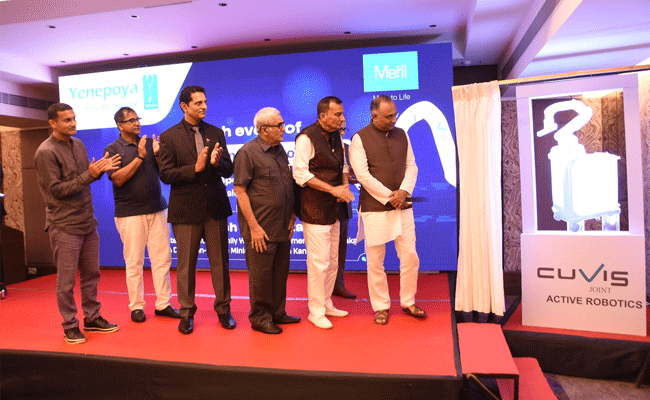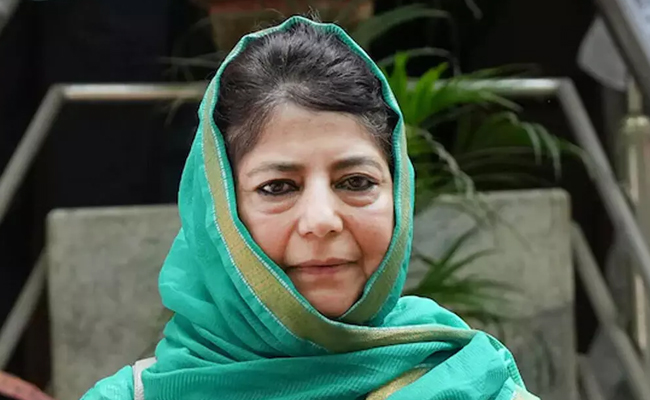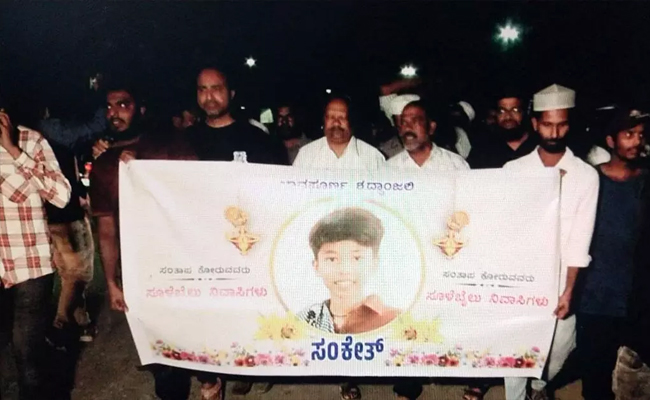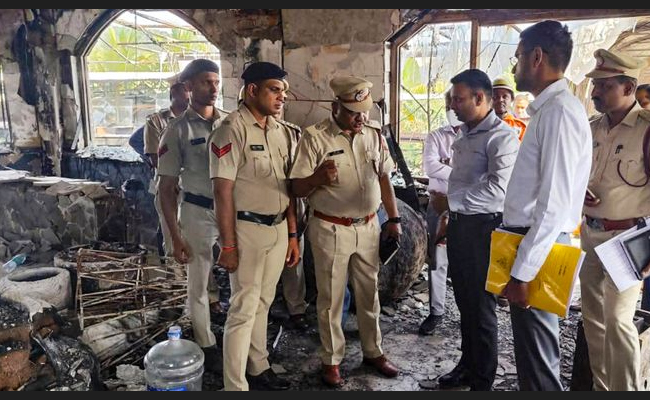Mangaluru: Yenepoya Specialty Hospital marked a significant milestone with the launch of its cutting-edge Joint Replacement Robotic Unit. The launch event took place at the Taj Vivanta Hotel in the city on Tuesday. Gracing the occasion, Karnataka Health Minister and Dakshina Kannada In-charge Minister Dinesh Gundurao inaugurated the revolutionary unit, which is a collaborative effort with Meril Life, a global med-tech company.
This pioneering initiative stands as the first-of-its-kind facility not only in Dakshina Kannada but also as the first outside Bengaluru in the state of Karnataka.
Dr. Muhammad Thahir, the Director – Medical at Yenepoya Hospital, extended a warm welcome to the esteemed guests and attendees, setting the tone for the event. Dr. Yenepoya Abdulla Kunhi, Chairman of Yenepoya Group, followed with introductory remarks that shed light on the transformative potential of the newly launched robotic unit in the realm of healthcare. Dr. Kunhi also emphasized the need for adapting to technological advancements for the betterment of humanity and acknowledged the district's continuous commitment to healthcare excellence.
Suvdeep, representing Meril, provided an insightful overview of the Cuvis Joint Replacement Robotic Unit, now available at Yenepoya Specialty Hospital. Highlighting its uniqueness, Suvdeep explained that it's the sole fully-automatic robotic joint replacement unit currently accessible. The technology empowers doctors to offer personalized alignments based on a generated 3D model from CT scans, underscoring the critical role of medical expertise in the process.
Dr. Deepak Rai, Consultant Orthopaedic Surgeon at Yenepoya Specialty Hospital, applauded Abdulla Kunhi and Mohammed Farhaad Yenepoya for their visionary efforts in elevating healthcare standards in Dakshina Kannada. Dr. Rai elucidated the profound impact this robotic joint replacement unit is anticipated to bring to the future of healthcare over the next decade.
Explaining the concept of Joint Replacement Robotic Surgery, the Cuvis system was described as a tool that employs accurate CT scans of the knee and meticulous measurements pre-surgery, delivering enhanced precision and benefits in the field of joint replacement.
Minister Dinesh Gundurao commended the new service and urged the public to utilize such advanced offerings in the region. He also stressed the importance of researching why arthritic issues are increasingly affecting the younger generation. Minister Gundurao applauded the healthcare contributions of Yenepoya Group and underscored their resolute commitment to elevating healthcare in the district.
The event concluded with Dhanush Shetty extending a vote of thanks, while Clinical Dietitian Haifa Ansari efficiently compered the proceedings.
Managing Director of Yenepoya Group, Yenepoya Mohammed Kunhi, Director Operations Yenepoya Abdulla Javeed, Pro-Chancellor of Yenepoya Deemed to be University Yenepoya Mohammed Farhaad, Vice-Chancellor Dr. Vijay Kumar, Former Minister Ramanath Rai, Dr. Bhaskar Shetty, Dr. CP Habib Rehman, Dr. Savita Shetty, and others were present during the significant occasion
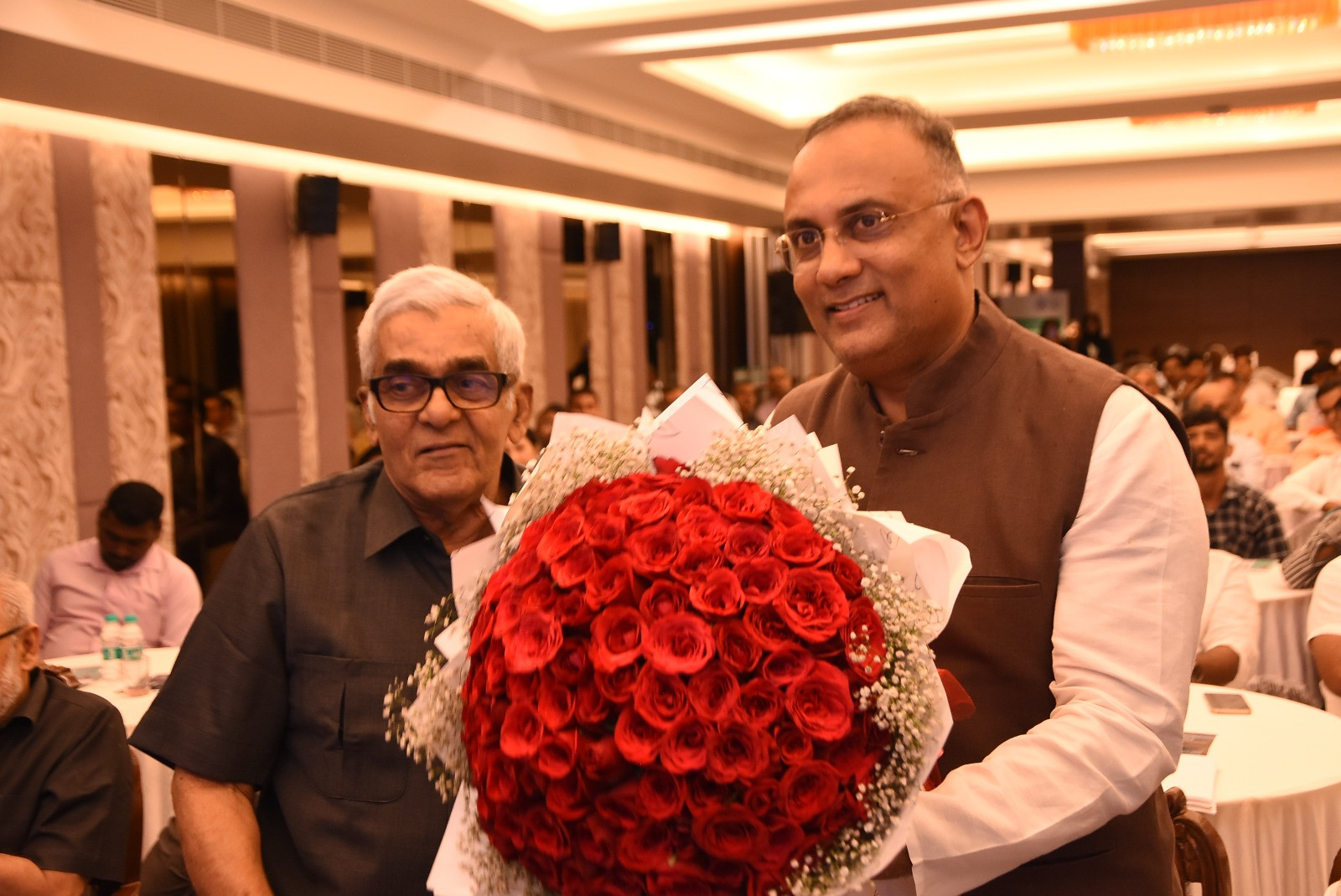
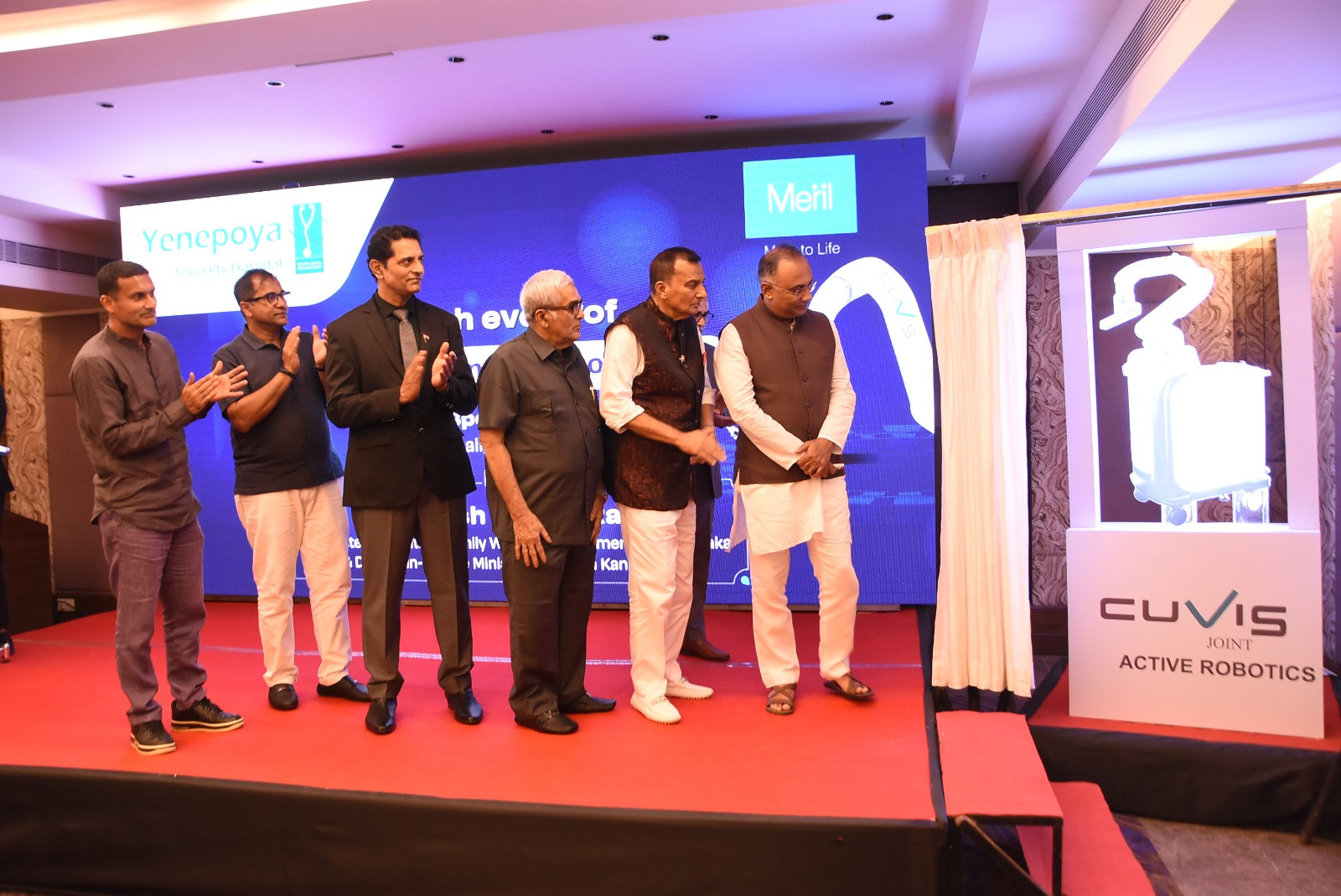
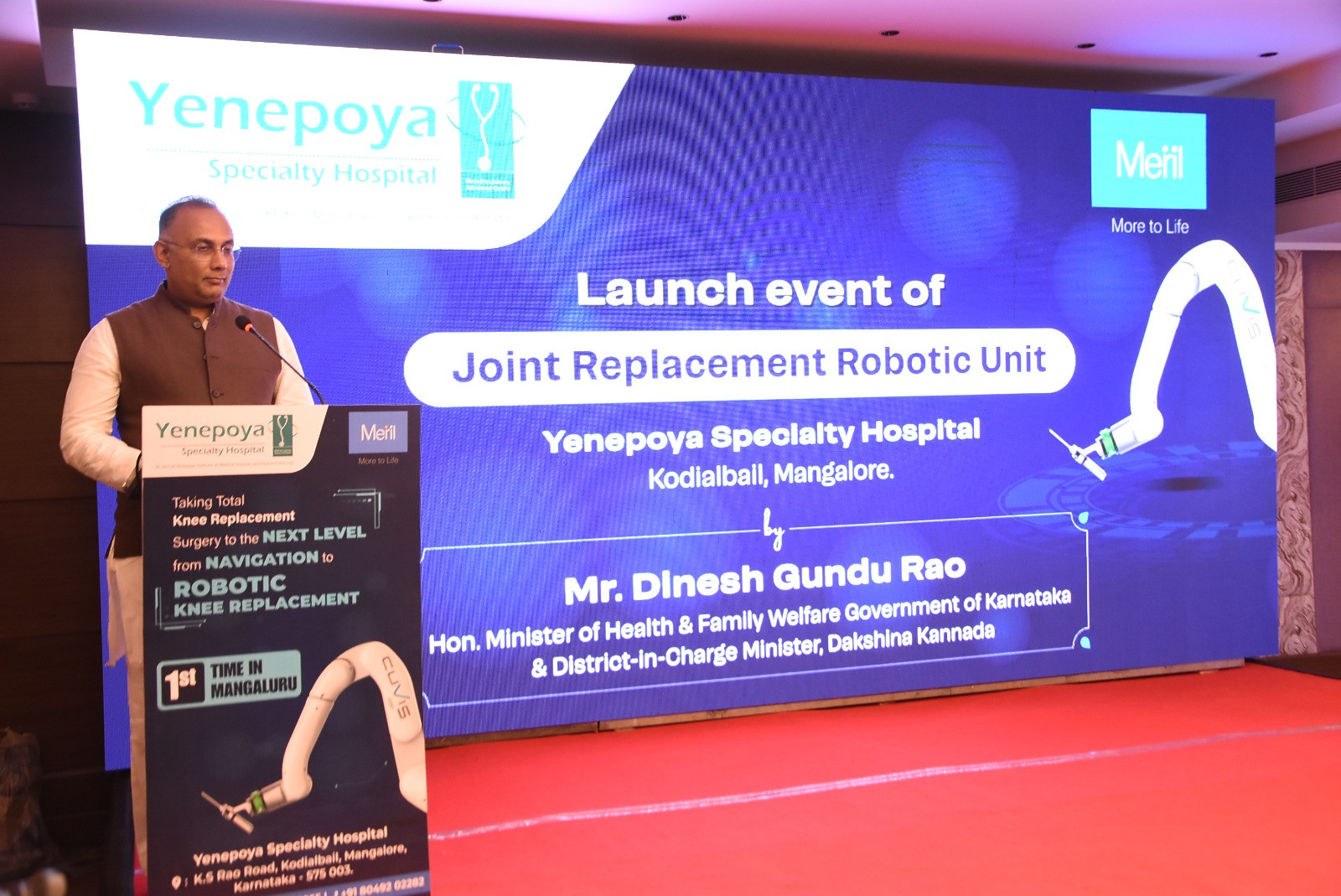
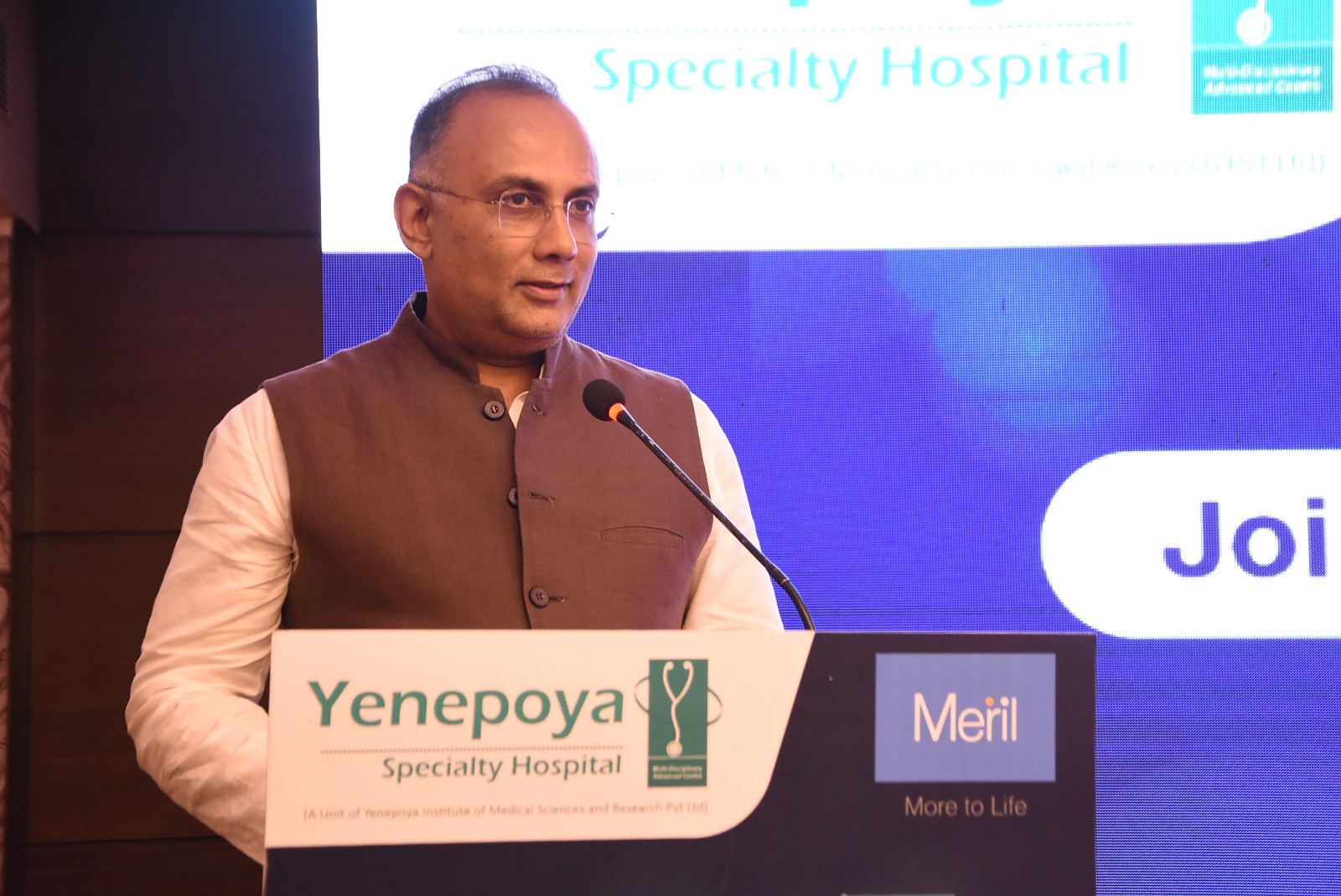
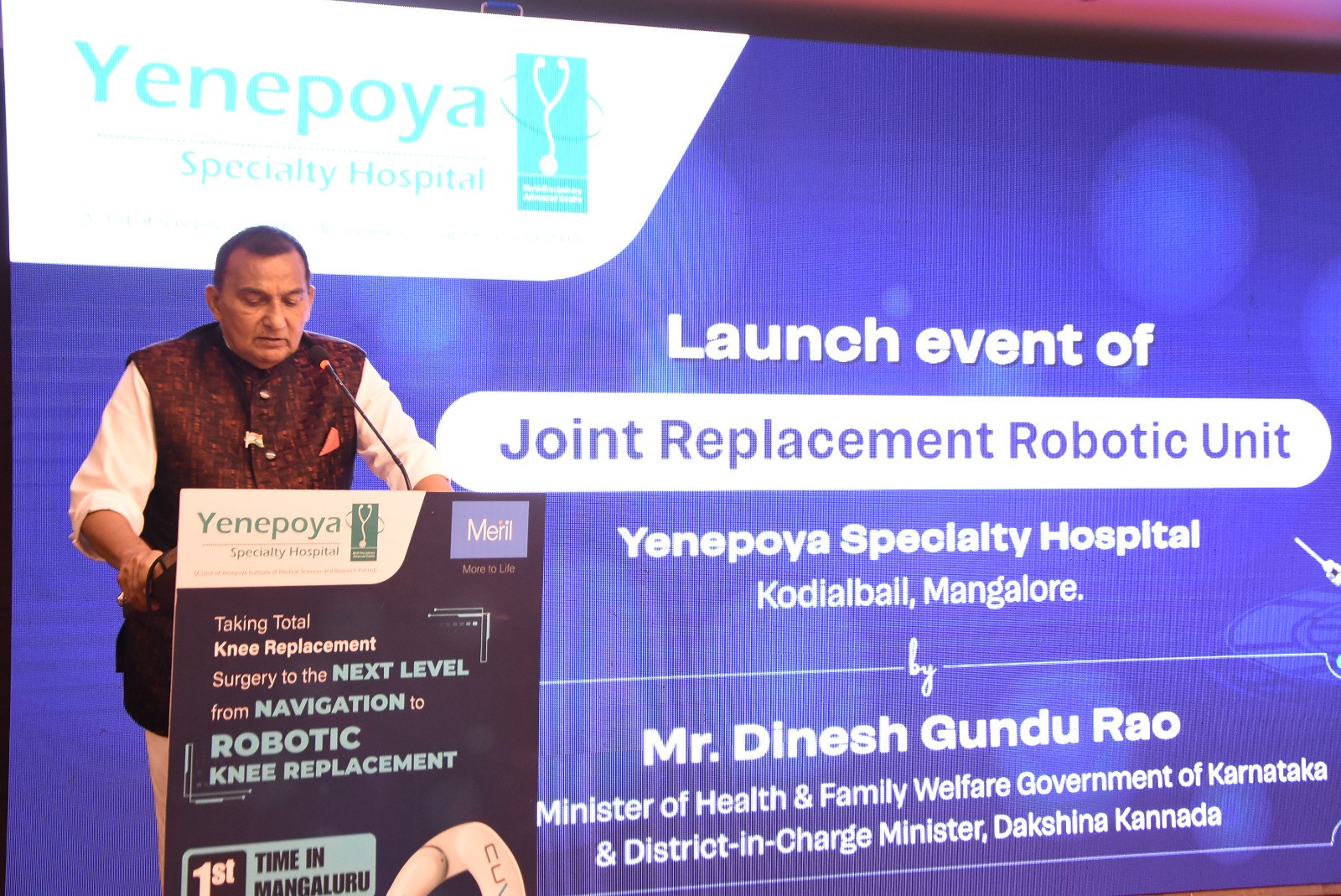
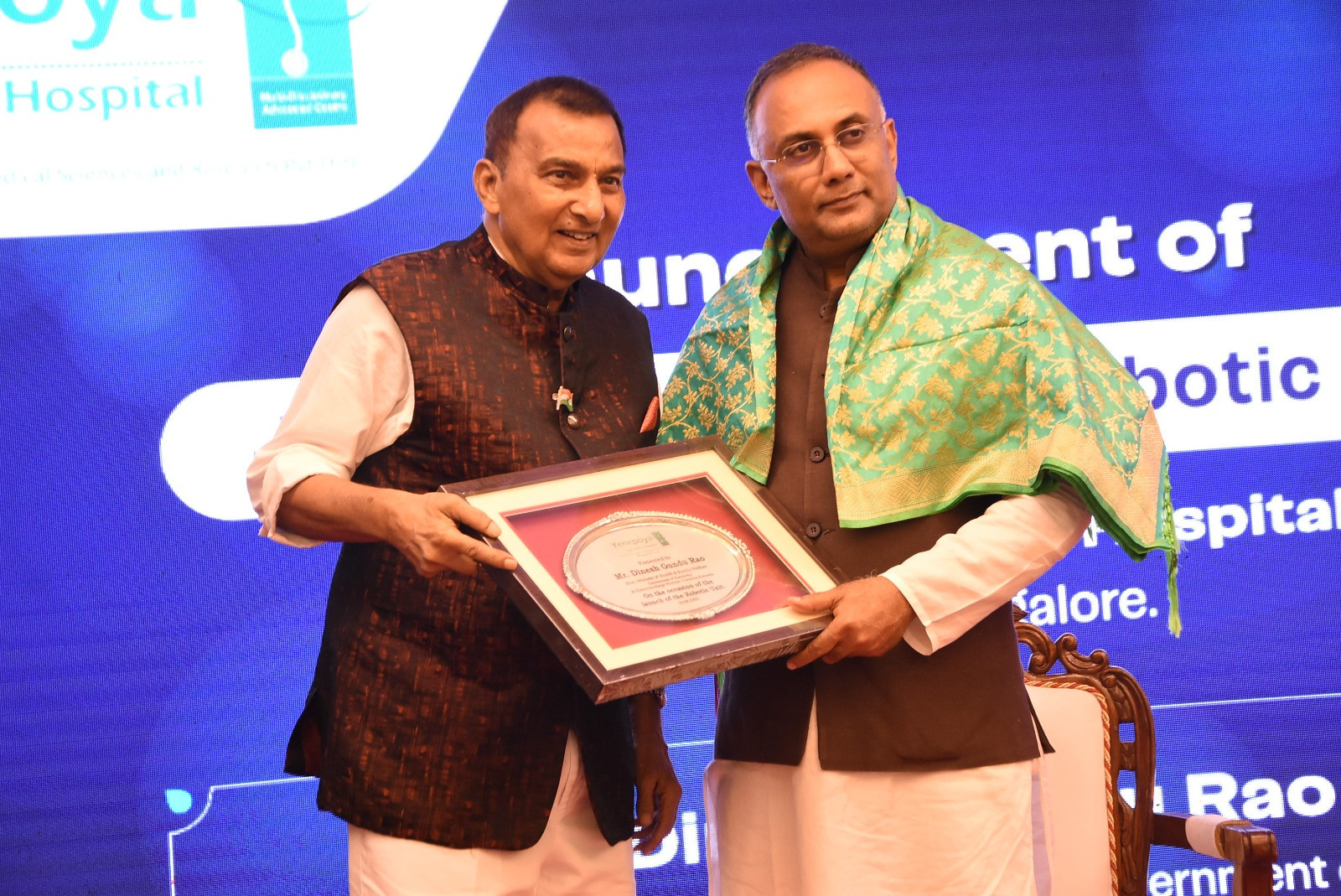
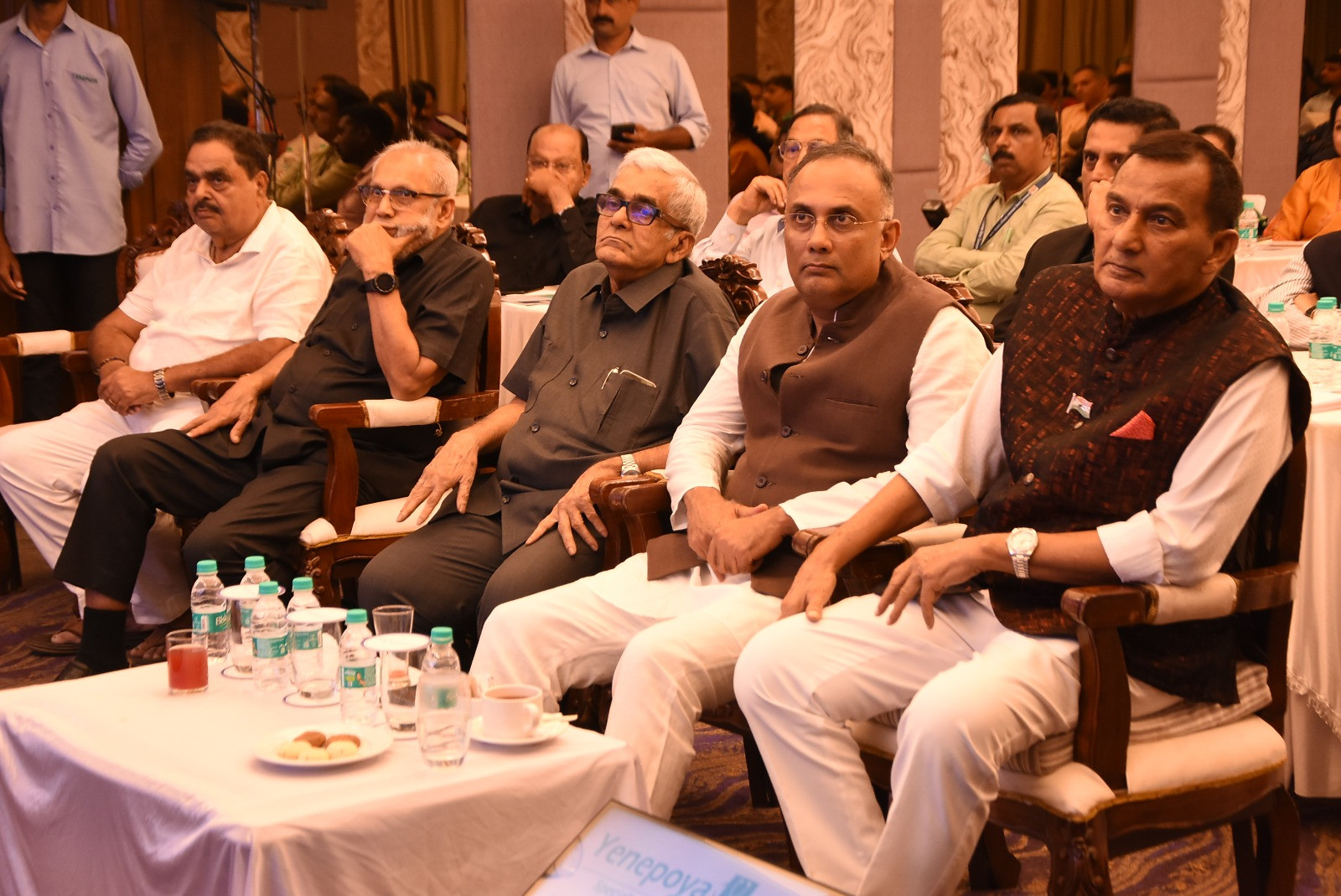
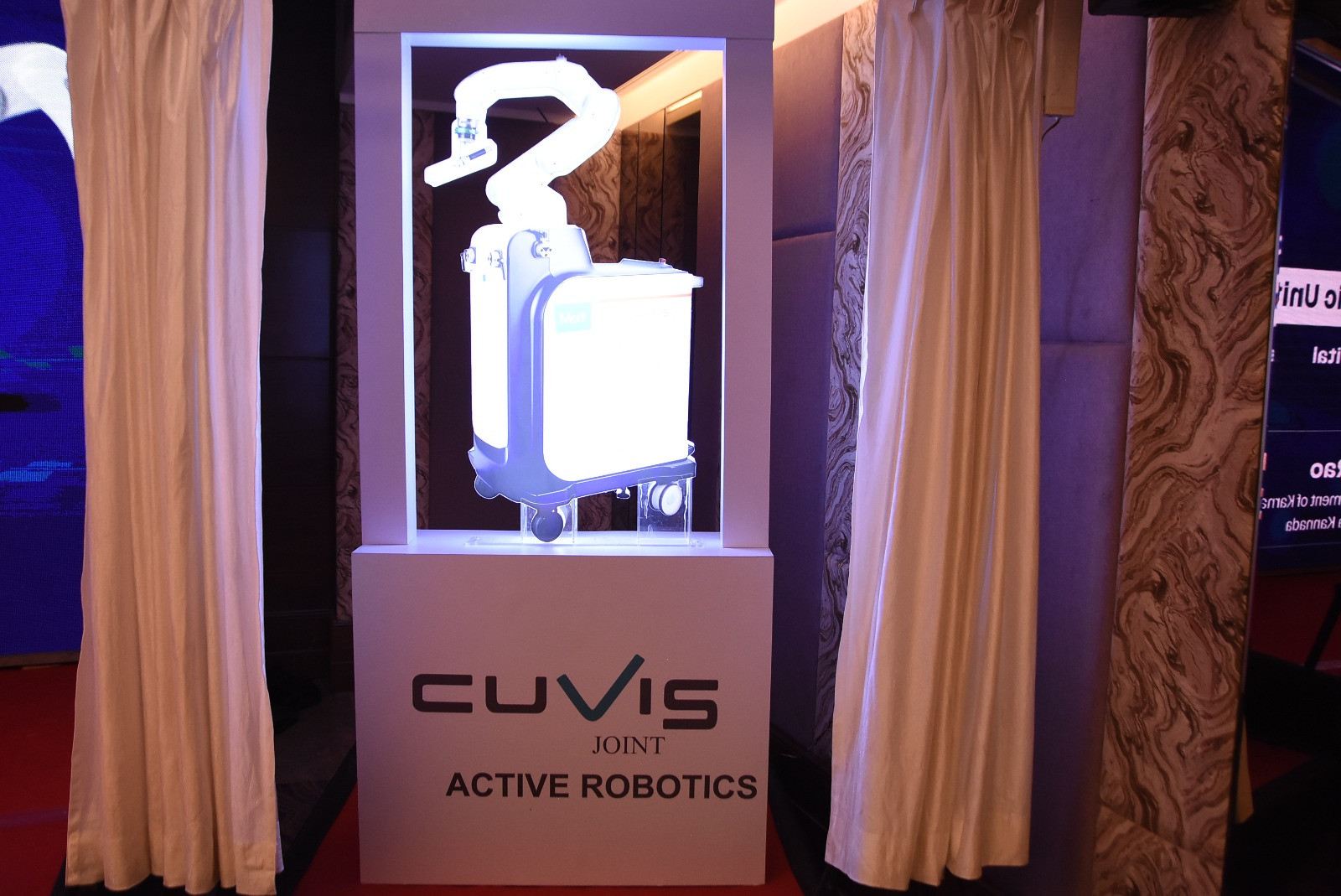
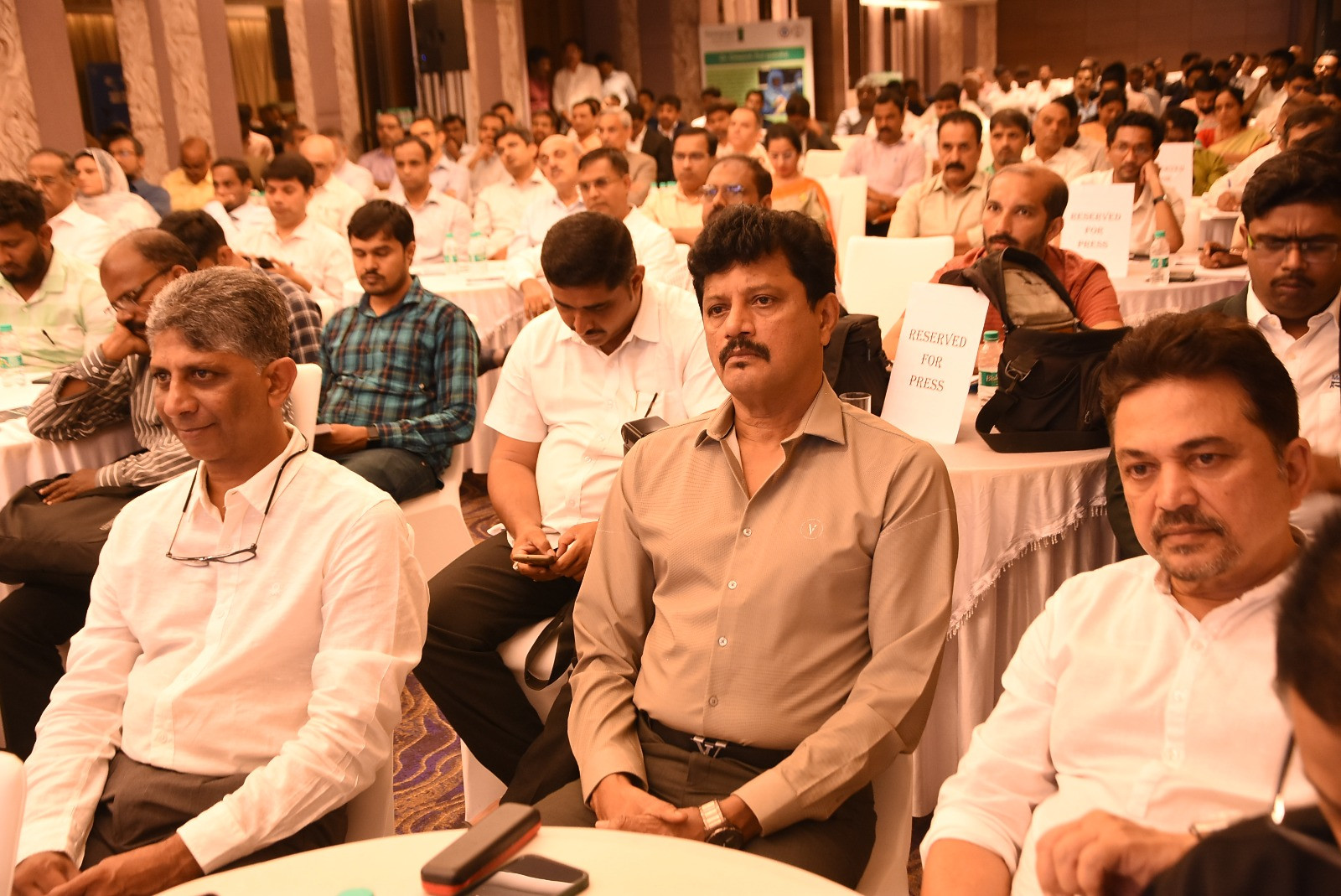
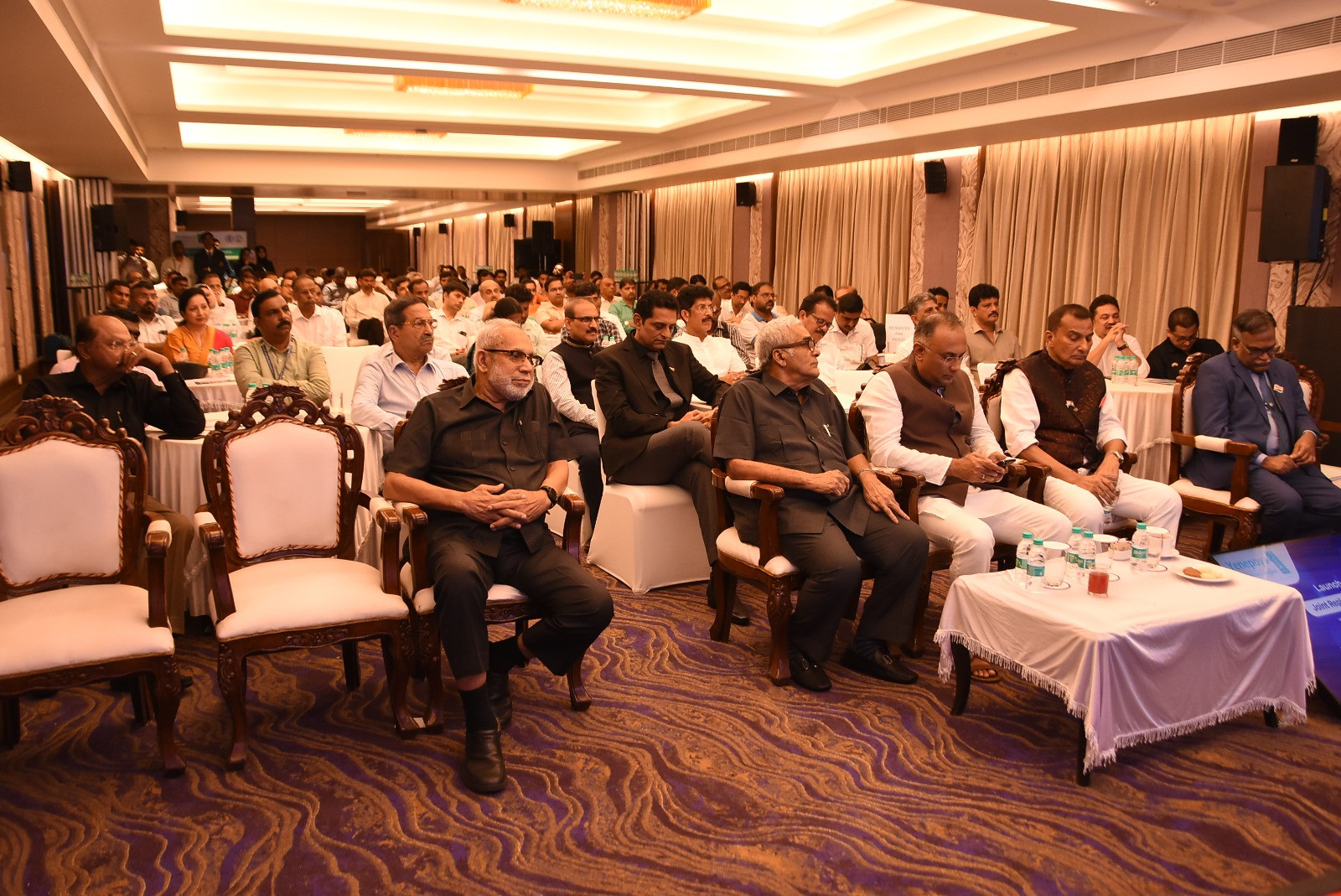
Let the Truth be known. If you read VB and like VB, please be a VB Supporter and Help us deliver the Truth to one and all.
Srinagar (PTI): Peoples Democratic Party (PDP) president Mehbooba Mufti on Thursday said Prime Minister Narendra Modi's visit to Israel was against the country's policy and not a good sign for Mahatma Gandhi's India.
She called Israeli Prime Minister Benjamin Netanyahu a "criminal" who is afraid of visiting many countries lest he be arrested.
"I think our country's policy is against it. Today, the whole world opposes Israel PM Netanyahu. The International Criminal Court has indicted him. He does not visit many countries for fear of arrest. Modi, who represents 140 crore people, goes there and hugs a criminal, meets and talks to him, I think, it is not a good sign for our country, for Gandhi's India," Mehbooba told reporters in Anantnag.
On panchayat elections due in Jammu and Kashmir, Mehbooba said they should be conducted because the people at the ground-level are beset with problems.
"People believed that after the government was formed, their difficulties would be resolved, but they are not being addressed. So, Panchayat elections should take place, and I request the people not to see a party, but elect good persons so that they serve them tomorrow," she said.
Asked about the anti-corruption bureau raid on a house of a brother of Deputy Chief Minister Surinder Chowdhary, the PDP chief said, "The raid on the brother of the deputy CM makes it clear on whose backing the brother does everything."
"You should ask this question to the deputy CM," the PDP leader added.
VIDEO | Khanbal, J&K: On PM Narendra Modi's visit to Israel, PDP Chief Mehbooba Mufti says, "PM went and hugged a criminal. He (Netanyahu) has been shunned by the world, banned from entering many countries."
— Press Trust of India (@PTI_News) February 26, 2026
(Full video available on PTI Videos - https://t.co/n147TvrpG7) pic.twitter.com/JuvwoEShxZ

